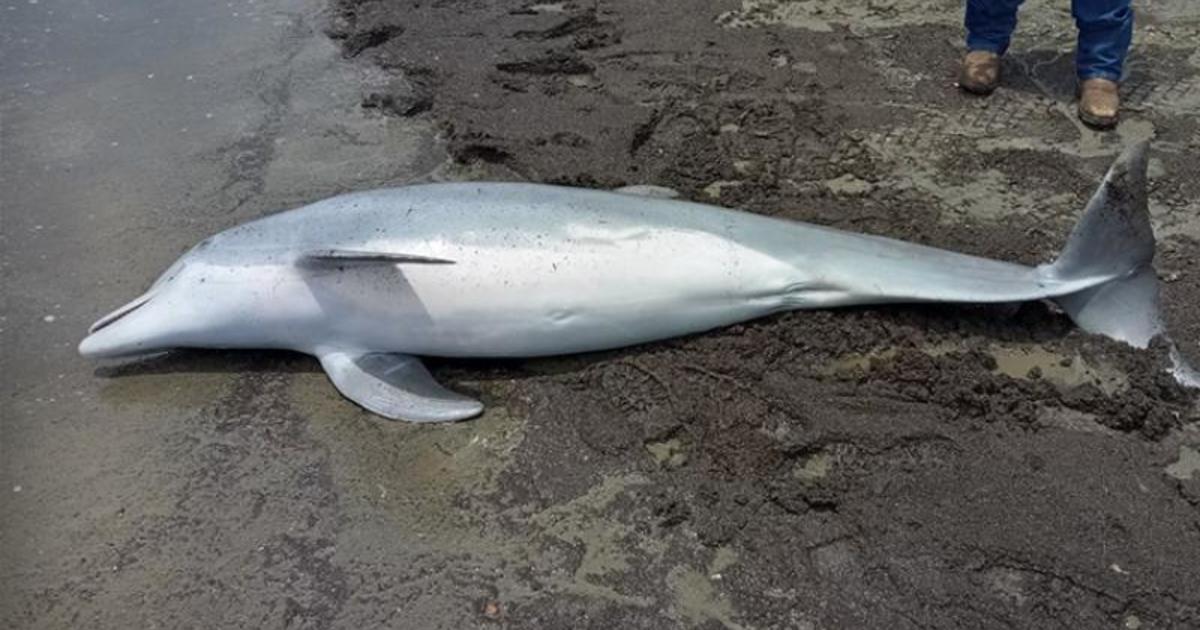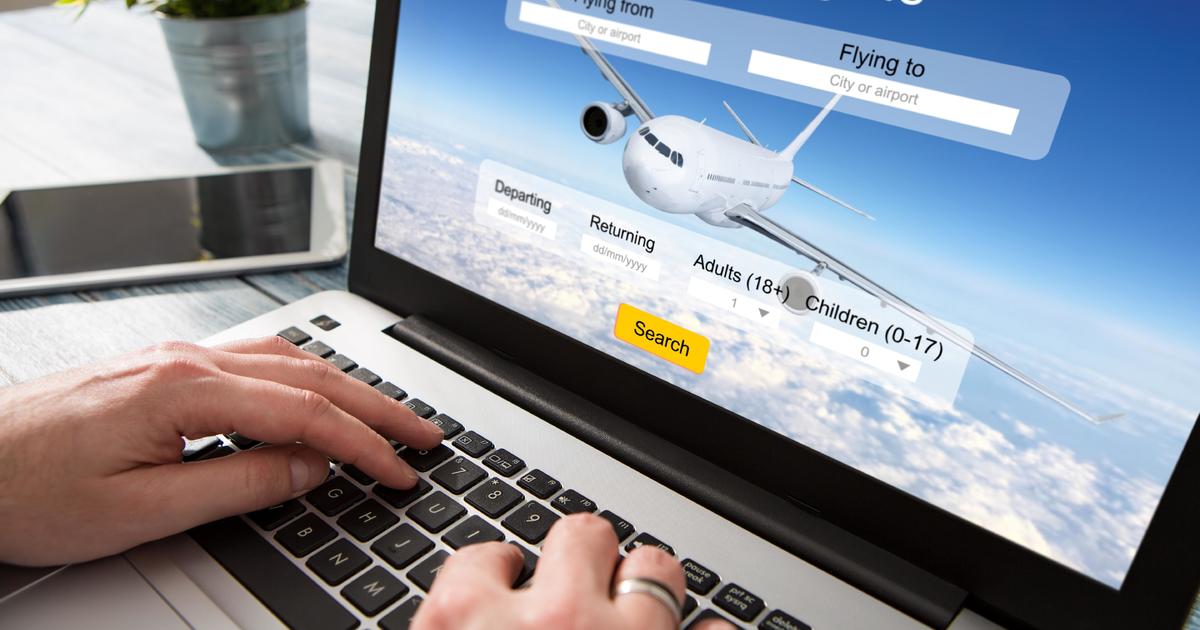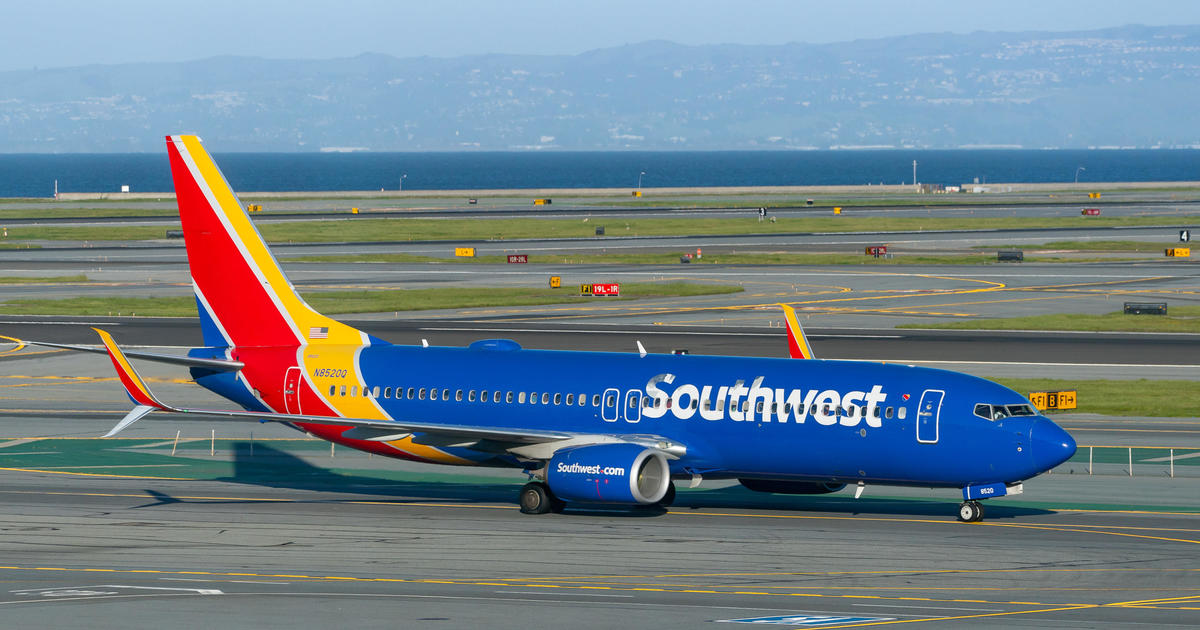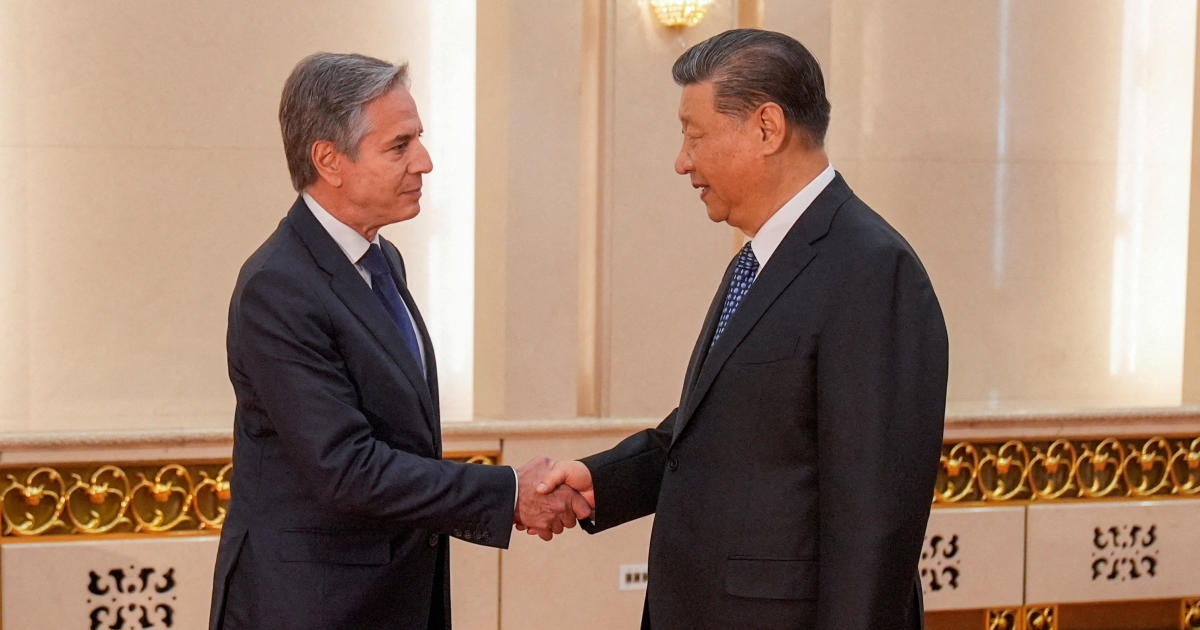Flight delays, cancellations could continue for a decade amid airline workforce shortage
Flight delays and cancellations that have plagued travelers in recent months have prompted a federal investigation into what's causing the chaos. And the issues are likely to linger for as much as a decade, a CBS News investigation found.
Transportation Secretary Pete Buttigieg said his office is now actively investigating several airlines for what a spokesperson described as "unrealistic scheduling" — practices that overstate a carrier's ability to service the tickets they sell, which can contribute to flight disruptions, including delays and cancellations.
The aviation industry is short roughly 32,000 commercial pilots, mechanics and air traffic controllers — and the gap widens every year, a CBS News analysis of data from the FAA, U.S. Department of Transportation and U.S. Department of Labor shows.
"There's definitely gaps in places," said Buttigieg. "The system is just uneven right now."
Buttigieg acknowledged the staffing shortages are contributing to a surge in flight cancellations and delays that have affected millions of American travelers in recent months.
When CBS News asked Buttigieg if his office should be holding airlines accountable and telling them not to schedule flights when there's not enough staff to fly them, the secretary was unequivocal.
"If an airline is knowingly flying an unrealistic schedule, there are going to be consequences," Buttigieg said.
"We have active investigations underway right now with regard to that," Buttigieg said. "We take that very seriously because when you sell a ticket to a paying customer and you make a profit off of that, you better be ready to do everything in your power to service that ticket. And we're also going to hold you responsible for what happens if you can't."
"If you look at the delays, for example, that America experienced through last year in the summer 2022, a lot of that was driven by these companies not having the staff that they needed, Buttigieg said. "This is not something that's going to be worked out overnight. It took years to get this way."
CBS News analysis of the data provided by FlightAware shows that the number of delays caused by issues within air carriers' control has jumped from 5.2% in 2018 to 7.6% in 2023, a rise of thousands of delayed flights.
"Unrealistic scheduling practices"
Airlines often blame the weather for delays. But staffing shortages can make those worse.
And it shows in the data.
The pressure on the system became clear during a recent four-day period this summer: June 24-27, when 31,850 flights — a third of all flights nationwide — were delayed. During that time, airlines canceled 6,346 scheduled flights.
That's one in every 17 flights canceled outright.
The number of delays during those four days was 25% higher than in the same period last year. And when compared to the same period in 2019, before the pandemic, the number of cancellations was up 374%.
Secretary Buttigieg's office confirmed to CBS News that Southwest Airlines is among the carriers under investigation but declined to name other airlines involved in the department probe or give a timeline for that process.
At the time of publication, Southwest Airlines had not responded to a request from CBS News for comment.
In late December, Southwest canceled thousands of flights during a massive winter storm. At the time, the airline issued a public apology for the disruptions, saying "we've let our customers and employees down."
The secretary's action comes in the wake of repeated calls for the Department of Transportation to provide a stronger response to increasing flight delays and cancellations as the country emerges from the pandemic.
According to the DOT, from Dec. 24 to Dec. 31, 2022, software and staffing issues forced Southwest Airlines to cancel 14,042 flights, or 72.3% of all canceled flights nationwide, leaving passengers stranded around the country.
And on Dec. 16, 2022, growing frustrated with rising complaints from consumers about ongoing flight disruptions, a bipartisan group of 34 state attorneys general wrote a letter to Secretary Buttigieg, saying "the USDOT has yet to develop the ability to respond quickly enough to or coordinate effectively with our offices."
Among several recommendations, the attorneys general wrote that "USDOT should require airlines to advertise and sell only flights that they have adequate personnel to fly and support, and perform regular audits of airlines to ensure compliance and impose fines on airlines that do not comply."
Months before that, in June 2022, U.S. Senators Edward Markey, of Massachusetts, and Richard Blumenthal, of Connecticut, both Democrats, wrote letters to the CEOs of 10 different airlines to demand corrective action.
"While the industry has blamed these disruptions on unexpected weather and air traffic control issues, the data suggests the airlines themselves are at fault for many flight delays and cancellations," the senators wrote.
"Airlines should have significant notice that they lack the crew to meet a certain flight schedule and, therefore, any shortages should not result in last-minute flight cancellations," the senators continued.
Kathleen Bangs, spokeswoman for flight tracking website FlightAware and a former commercial pilot, says when pending weather is a factor, it can be hard for airlines to predict how much to reduce flight schedules to spare passengers from travel headaches.
"How bad does it have to be?" said Bangs. "How widespread, how much of an impact do we think it's going to have at this airport, in that airport, to know how much we need to pare back those schedules? And I think, of course, they wanted to accommodate people."
Airlines-4-America, the association which represents seven of the nation's biggest carriers, declined to talk with CBS News about flight disruptions and the impact of staffing shortages. In an email, a spokesperson said the airlines have "reduced their schedules to reflect current operating realities," adding that they're "hiring aggressively to make sure they have the right people in the right place at the right time."
"U.S. airlines recognize the importance of securing a pipeline of new employees—pilots, flight attendants, mechanics and others—and have established new pilot training programs, enhanced recruitment efforts and implemented programs to address financial hurdles," the spokesperson wrote.
"We can't catch up"
There's no doubt the staffing shortage "affects us now," said Wichita State University emeritus associate professor Dean Headley. "They are leaving planes on the ground because they don't have enough people to fly them for ground crews or anything like that."
Headley conducted marketing analyses on U.S. commercial airlines for decades at the W. Frank Barton School of Business at Wichita State before retiring and assuming his current emeritus role there. Headley has published the Airline Quality Rating since 1991.
"The airlines are doing about as much as they can [to improve staffing levels]. They can train about 1,500 to 1,800 pilots a year," Headley said.
But since the industry is short about 17,000 pilots right now, "we can't catch up that quick," he said.
Because of the current staffing shortage, commercial airlines have "cut back flights to smaller regional airports. So, people [who] are not at a major airport will find that their flight schedules have been reduced simply because they don't have enough people to put in an airplane to fly it somewhere," Headley explained.
According to a letter to the U.S. Senate Commerce Committee dated June 21, 2023, the Regional Airline Association (RAA) said airlines have already left 73 different markets since 2019 and 321 airports have lost some air service. According to the RAA, 61 airports have lost more than half their flights and 16 airports have lost all their major commercial flights.
Dean Headley says that smaller airports and cities can expect to see airlines cut back their routes there as they struggle to meet demand.
What's worse, the data and industry experts, including Headley, say the trend in staffing issues points to a problem that could get a lot worse before it gets better and could affect your travel plans for another decade.
"Some of the predictions I'm hearing is that the pilot shortage won't be resolved until 2032 or something like that," Headley said.
This worker shortage problem has been building for years but was made worse after the COVID pandemic forced airlines to drastically cut back on their routes and lay off thousands of workers. This prompted many pilots, flight attendants and maintenance workers to take early retirement or leave the industry altogether. When the flying public returned to the airports in 2022 and 2023, the airlines simply didn't have enough people to meet the new demand.
Training a pilot can take two years or longer and cost more than $100,000. And, by law, commercial pilots must retire at age 65.
Aviation consultant Oliver Wyman predicts that because of that mandatory retirement the industry will be short 24,000 pilots by the year 2026 before the gap between trained pilots and the nation's commercial demand slowly begins to close.
Not just pilots
It's the same story with aviation mechanics or maintenance technicians, as well as air traffic controllers.
The flying public's demand for flights is rising while the number of these critical workers is falling.
While the number of people boarding planes has risen to record levels only seen just before the COVID-19 pandemic, the number of pilots, mechanics and air traffic controllers working to move all those passengers and planes isn't keeping up with that demand.
CBS News analysis of employee data shows the aviation industry is short about 12,800 certified, trained mechanics.
"That is the big unsung shortage that nobody talks about," said Bangs of FlightAware. "Most people don't understand that about half of all airline maintenance is done overseas. So, we outsource a lot of that maintenance and I think it's going to be challenging. We have to figure out a way — how do we attract young people to become mechanics, which are critical, but also at the same time they're outsourcing more and more of their work?"
Proper training and certification can take 18 months to two years. Because of that time lag, consultant Oliver Wyman predicts a shortage of 18,000 mechanics in the coming years.
The worker shortfall includes perhaps the most important job to ensure the safety of the flying public, air traffic controllers.
Air traffic controllers must attend a specialized academy for two to five months, then complete two to five years of on-the-job training before they can become fully certified. That process can cost a potential worker $35,000 or more. By law air traffic controllers must retire at age 56.
Right now, CBS News analysis shows that there is a shortage of about 3,000 fully-certified air traffic controllers to meet current demand.
A June 21, 2023, report by the U.S. Department of Transportation's Inspector General raises other serious concerns about that shortfall and takes the FAA to task for making "limited efforts to ensure adequate controller staffing" around the country. The OIG found that in 20 of the 26 critical control towers in the United States, staffing fell well below the FAA's own 85% minimum threshold. And in New York TRACON (54%), Miami Tower (66%) and New York Center (68%) staffing is critically low.
All of this concerns 30-year veteran pilot Captain Dennis Tajer, a spokesman for the American Airlines pilots' union.
"What I'm seeing is the system is under super pressure," Tajer said. Right now, "we are sustaining that margin of safety ... but eventually it's like anything and something's going to give."
One possible solution to this shortage that's been embraced by government leaders and the airline industry: expanding the aviation workforce to include women and minorities once excluded from these jobs. U.S. Department of Labor statistics show that historically aviation jobs were made up of 95% White men.
"A lot of Americans have been underrepresented in aviation in the past," Secretary Buttigieg said. "We've got to make sure that every kind of American who might be disposed to thrive in an aviation career sees that they could have a future, whether it's as a pilot, an air traffic controller, a mechanic." Multiple programs are trying to recruit a diverse workforce to fill the available jobs.
One is the Aviation Institute of Maintenance (AIM), which operates 15 campuses located across the United States. Currently AIM is training about 4,200 students to become aviation maintenance technicians.
Boeing estimated the U.S. alone will need 178,000 aircraft mechanics, and more than 600,000 worldwide.
"The shortage is real, it's impacting everyone who engages in air travel, and it's an issue we have to address or ticket prices are going to continue to go up and the delays will continue to plague us," said AIM's vice president, Joel English.
"What we do in our classes is make sure that we're appealing to every type of individual who's looking for a great career pathway," said English. "Looking around [at] our students, you'll see almost an even mix between Caucasian, African American and races like Hispanic and Asian. Our student body, about 15% female."
While 15% female students is still low, English says it is much higher than the current 2% of women mechanics in aviation today.
In 2022, 1,546 students graduated from AIM; 1,231 of them became certified aircraft technicians. English says the school has successfully placed more than 70% of its graduates in aviation industry jobs.
Nancy Tovar, a 33-year-old mother of two, has gone back to school to learn to become an airline mechanic near Dallas.
"I was a stay-at-home mom before I came into school," Tovar said. "I didn't know what I wanted to do in life up until recently, and I just became a single mom. So that definitely motivated me and pushed me to figure out what's out here. And, you know, usually women… you don't see a lot of women in these kinds of professions."
"They only saw me as mom cleaning and cooking at home. And now they see me as mom is going to be working on this airplane that's flying and maybe the next one. And so, whenever they see a plane in the sky, they're going to be like, 'Mom, that's going to be you working on that one.'"
There are also pilot schools that cater to only female pilots.
Some programs are working to attract future aviation workers while still in their early teens. A private specialty high school in the Dallas area is designed to teach students not only basic reading, writing and arithmetic but the skills of aerodynamics and flying.
Rising Aviation High School provides a traditional curriculum with an emphasis on STEM and aviation-related studies. The school even prepares students to get their private pilot's licenses.
Jocelyn Bruce, a junior, wants to attend the Air Force Academy and then fly for the Air Force before transitioning to piloting private charter or cargo planes.
"You would find that a lot of young girls, a lot of especially Black women really like aviation," Bruce said. "They just never been told that it's something that they can do. So, a lot of them don't. They don't pursue. They don't pursue it."
Bruce admitted that embarking on her studies at the school put her out of her comfort zone.
"It made me a little nervous at first, but I got acclimated and comfortable," Bruce said. "Now it's second nature."
Both Bruce and Tovar said the government could help by providing more scholarships and educational grants to aspiring professionals like them.
That's something Transportation Secretary Pete Buttigieg agreed is an idea worth considering.
"I don't believe that taxpayers should pay for something that companies should be doing on their own," said Buttigieg. "But I do think it's a fair question why you would get more subsidy or support if you're going out to be a dentist then if you're going out to be a pilot (or aviation professional.) And we're looking right now what we might be able to do to true that up and to make sure that more people are supported who will have a great good paying career."
Buttigieg acknowledged that there currently are "some gaps in what we do as a country when it comes to how we support the funding of the education for people to get into some of these fields."
"Student loans are something that are subsidized when you're going to a four-year university," Buttigieg said. "But if you're going into one of these mechanics' programs, it's not quite the same. That's something I think we need to look at a policy level."



